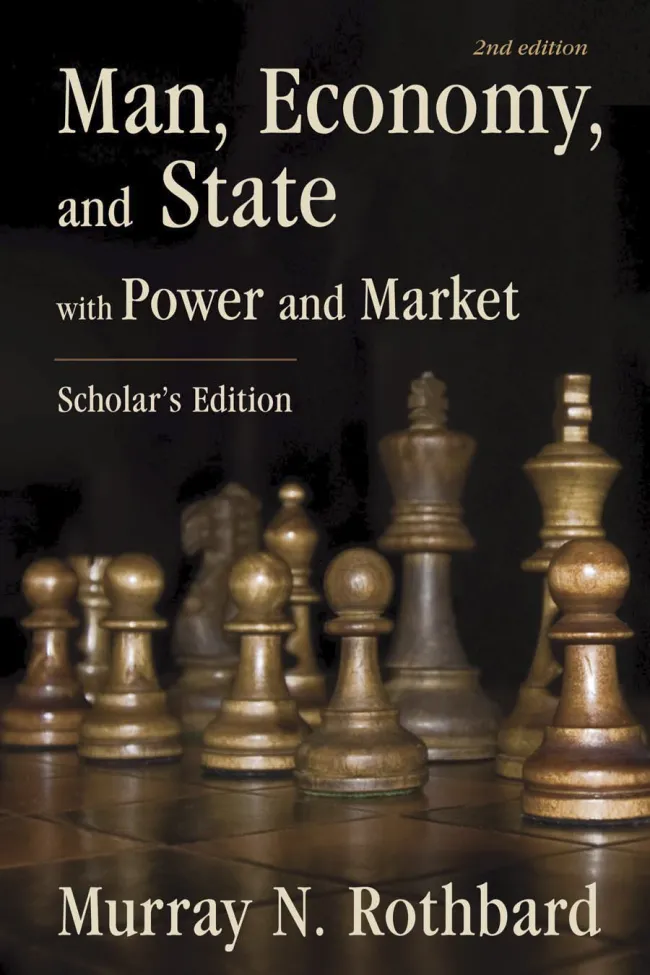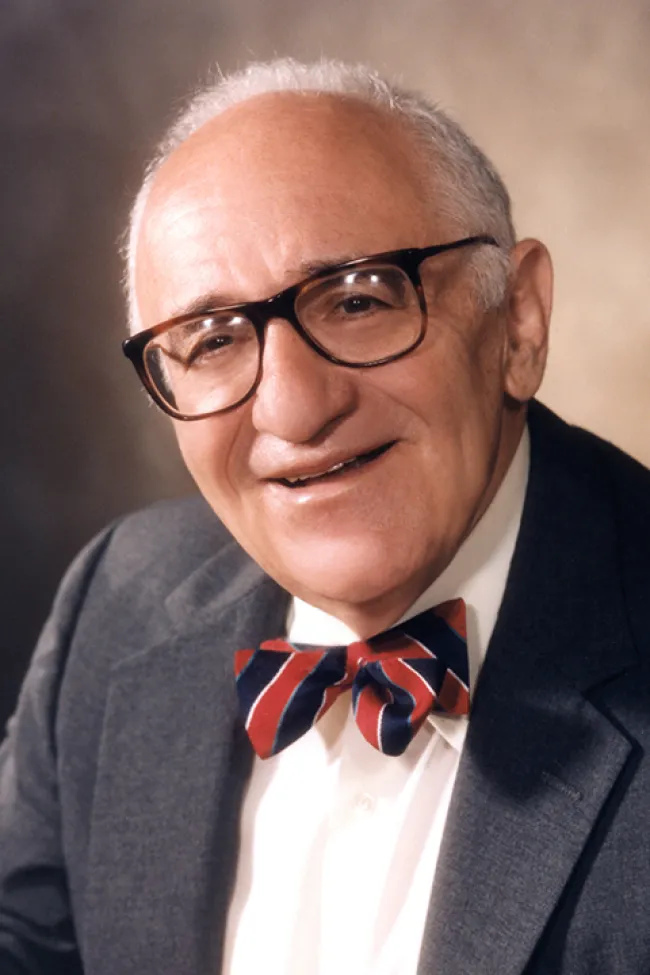- Downloads:
- View HTML Version
- man_economy_and_state_with_power_and_market_3.pdf
- Man_Economy_and_State_with_Power_and_Market_Rothbard.epub
- Man Economy and State volume 1 Swedish.pdf
- Man Economy and State volume 2 Swedish.pdf
- Related Content:
- Man, Economy, and State, with Power and Market
Murray N. Rothbard’s great treatise Man, Economy, and State and its complementary text Power and Market, are here combined into a single edition as they were written to be. It provides a sweeping presentation of Austrian economic theory, a reconstruction of many aspects of that theory, a rigorous criticism of alternative schools, and an inspiring look at a science of liberty that concerns nearly everything and should concern everyone.
From Rothbard, we learn that economics is the science that deals with the rise and fall of civilization, the advancement and retrenchment of human development, the feeding and healing of the multitudes, and the question of whether human affairs are dominated by cooperation or violence.
Economics in Rothbard’s wonderful book emerges as the beautiful logic of that underlies human action in a world of scarcity, the lens on how exchange makes it possible for people to cooperate toward their mutual betterment. We see how money facilitates this, and allows for calculation over time that permits capital to expand and investment to take place. We see how entrepreneurship, based on real judgments and risk taking, is the driving force of the market.
REVIEWS
As the result of many years of sagacious and discerning meditation, [Rothbard] joins the ranks of the eminent economists by publishing a voluminous work, a systematic treatise on economics.... An epochal contribution to the general science of human action, praxeology, and its practically most important and up-to-now best elaborated part, economics. Henceforth all essential studies in in these branches of knowledge will have to take full account of the theories and criticisms expounded by Dr. Rothbard. —Ludwig von Mises
It is in fact the most important general treatise on economic principles since Ludwig von Mises’s Human Action in 1949…. —Henry Hazlitt
Man, Economy, and State is Murray Rothbard’s main work in economic theory. It appeared in 1962, when Murray was only 36 years old. In it Murray develops the entire body of economic theory, in a step by step fashion, beginning with incontestable axioms and proceeding to the most intricate problems of business cycle theory and fundamental breakthroughs in monopoly theory. And along the way he presents a blistering refutation of all variants of mathematical economics. The book has in the meantime become a modern classic and ranks with Mises’s Human Action as one of the two towering achievements of the Austrian School of economics. In Power and Market, Murray analyzed the economic consequences of any conceivable form of government interference in markets. The Scholars Edition brings both books together to form a magnificent whole. —Hans-Hermann Hoppe

No content found

Murray N. Rothbard made major contributions to economics, history, political philosophy, and legal theory. He combined Austrian economics with a fervent commitment to individual liberty.
Auburn, Ala.: Mises Institute, 2004 (1962, 1970)
Dedication from Scholar’s Edition:
To Ludwig von Mises (Man, Economy, and State) and to Libertarians of the Past, who Blazed the Trail and to Libertarians of the Future, who Shall Overcome (Power and Market)
Man, Economy, and State with Power and Market:
Copyright 2004 by Ludwig von Mises Institute, Scholar’s Edition
Copyright 2009 by Ludwig von Mises Institute, Scholar’s Edition, second edition
Man, Economy, and State:
Copyright 1962 by William Volker Fund and D. Van Nostrand
Copyright 1970 by Murray Rothbard
Copyright 1993 by Murray N. Rothbard, revised edition
Copyright 2001 by Ludwig von Mises Institute
Power and Market:
Copyright 1970 by Institute for Humane Studies
Copyright 1977 by Institute for Humane Studies, second edition
ISBN: 978-1-933550-27-5

